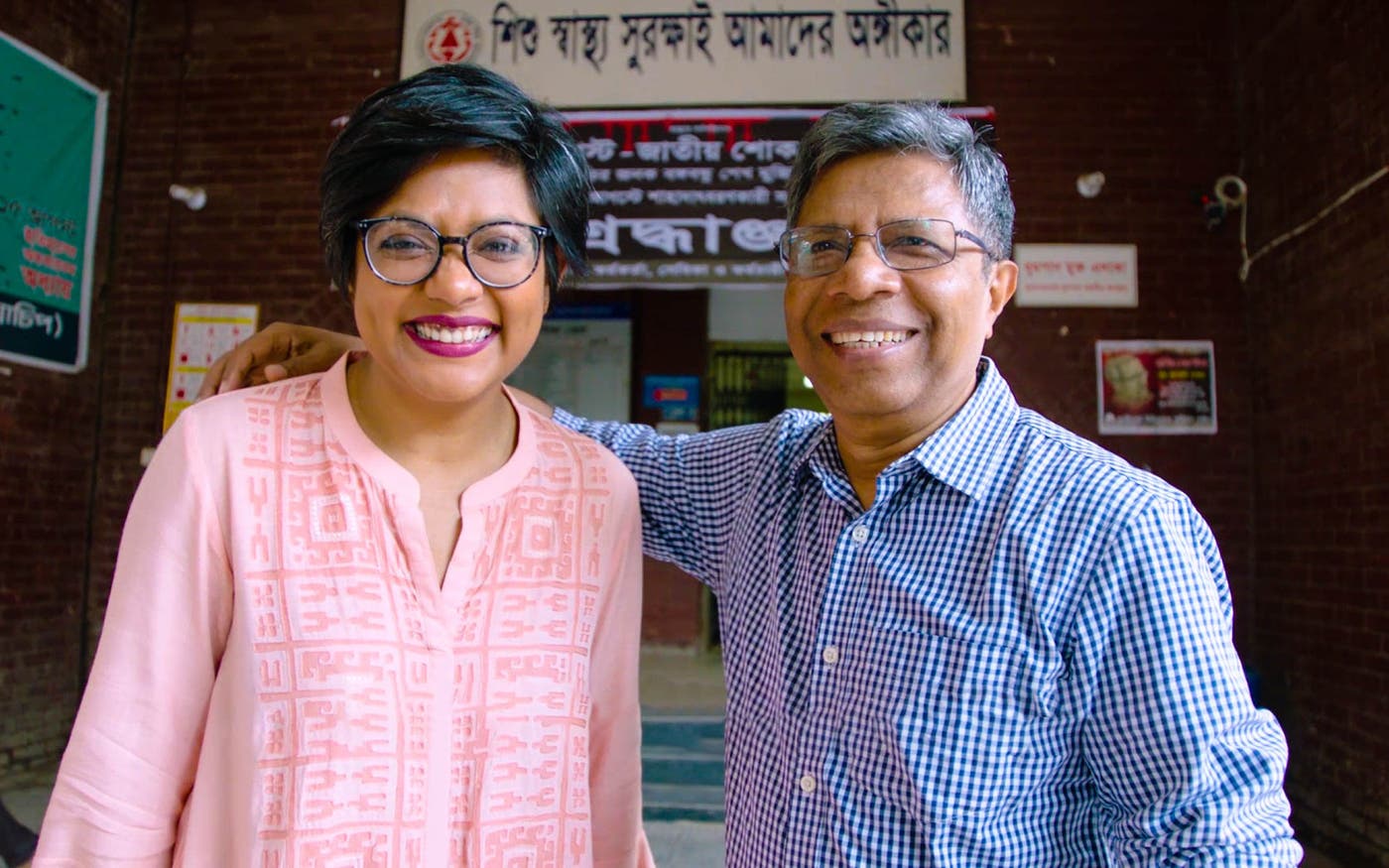
Like father, like daughter
Bangladesh’s dynamic duo battle global health inequity
A father-daughter team is working to reduce child mortality in Bangladesh.

As a little girl growing up in Bangladesh, Senjuti Saha remembers how dinner conversations in her family often focused on bacteria, viruses, and infectious diseases.
Those topics might strike many people as a little gross at mealtime, but in the Saha family that’s what happened when her father, Dr. Samir Saha, brought his work home. A professor of microbiology, Samir used family dinner to practice his scientific lectures or share what he was learning about Bangladesh’s health challenges. (I wish I could have had a seat at the table—I love learning about diseases!)
Those conversations had a big impression on Senjuti, who went on to become a microbiologist herself. Dr. Senjuti Saha now works with her father at the Child Health Research Foundation (CHRF), an organization he helped found to reduce child mortality in Bangladesh and other countries.
Together, the father–daughter team are a dynamic duo of global health. They are working to close the gap in healthcare delivery between low-income countries, where child mortality is high, and wealthier countries, by using data, state-of-the-art diagnostics, and vaccines to battle infectious diseases. Their research is not only being used in Bangladesh, but by other countries in South Asia facing similar health challenges.
Thanks to the work of the CHRF, along with strong support for childhood immunization and health care by the government, Bangladesh continues to push down its under-5 mortality rate and improve overall healthcare delivery. Vaccine coverage in Bangladesh, a country of 170 million people, has now reached 98 percent.
Samir, who also heads the department of microbiology at the Dhaka Shishu Hospital in Dhaka, played an instrumental role in helping Bangladesh introduce vaccines for meningitis and pneumonia, two major childhood killers. While those vaccines were available in the U.S. and other rich countries, they were not in low-income countries like Bangladesh. Working diligently to document the burden of these diseases, Samir provided the data and evidence to convince public health policymakers to support the rollout of both vaccines, which have already prevented thousands of deaths.
Senjuti focuses on finding simpler ways to diagnose mysterious illnesses in poor countries that affect newborns and children. In 2017, when there was an unexplained spike in meningitis cases among children in Bangladesh, Senjuti was able to unravel the mystery by analyzing the genetic material of the children. (The meningitis cases, she discovered, were caused by an outbreak of Chikungunya fever, a virus spready by mosquitos.) But in order to get to the bottom of the mystery, she had to fly the samples to the U.S. for analysis. She’s since set up a low-cost diagnostic tool in Bangladesh to help the country quickly address future outbreaks of meningitis and other deadly diseases.
The information that the Sahas are gathering from their research is critical for Bangladesh, which lacks many of the resources needed to diagnose and treat illnesses. The data CHRF gathers is helping to inform government policy decisions for the most effective ways to combat diseases. It is also being used to design new vaccines.
Even as conditions improve in Bangladesh, however, the country has a long way to go. Speaking at this year’s Goalkeepers event, Senjuti shared a powerful story that captured the huge health challenges that remain in Bangladesh. At Dhaka Shishu Hospital, Bangladesh’s largest pediatric facility, more than 6,000 children are refused admission every year because its 665 beds are always full, and many of the beds are occupied by people suffering from preventable diseases. Many of the children turned away need immediate care.
If Bangladesh can do more to prevent diseases, however, it can free up resources to focus more on the illnesses that can’t be prevented. Thanks to the work of Samir and Senjuti, Bangladesh is moving toward a future of fewer infectious diseases and more available hospital beds.


